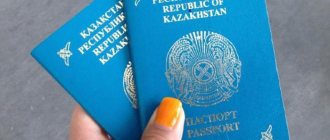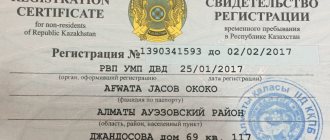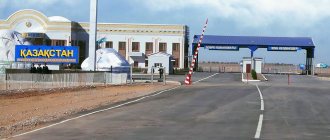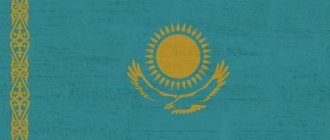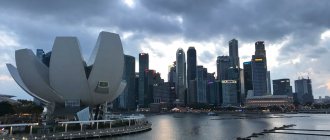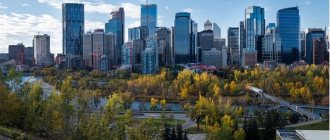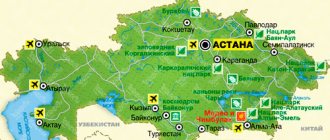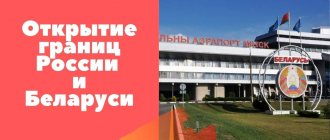Advantages and disadvantages
Kazakhstan is a picturesque and interesting country. But, like any state, it has its advantages and disadvantages. What is the advantage of this country?
- Political stability. Kazakhstan is one of the most politically stable states. Despite the events that took place in Ukraine, Georgia and Kyrgyzstan, the situation in Kazakhstan remains calm.
- Natural beauty. You can enjoy the mountain views of the Tien Shan, swim in the clean lakes of Balkhash, visit the Altyn-Emel nature reserve and the oldest monument of the Charyn Canyon. And all this is only a small part of the natural world of the state.
- Many cultural sites. The country has a huge number of mausoleums, monuments, unique mosques and art monuments.
- Hospitable and friendly people, especially towards foreigners.
There are also disadvantages, but they are mainly associated with harsh climatic conditions and the economy.
- Low standard of living of the population. According to the 2016 ratings, it ranks 47th in terms of living standards.
- Small wages. The average salary in Kazakhstan is approximately 140 thousand tenge ($450). Don't forget about food and rent.
- Dry climate. The average temperature in July ranges from 17-30 degrees. But it can also reach 50. Winters are light and cold. The temperature in January is 19 degrees. There is little precipitation throughout the year.
- Peculiar traditions. Looking at life in the country, you understand that the rules are sometimes cruel. For example, the traditional fun of kokpar is not to everyone’s taste.
- Seismic activity. Earthquakes are a common occurrence for Kazakhstan. The country is subject to tremors of varying magnitude.
Who needs a residence permit?
A residence permit (residence permit) must be issued to those foreigners and stateless persons who intend to stay on the territory of Kazakhstan beyond the established period of temporary stay or live on a permanent basis.
The reasons why a foreign individual wishes to obtain a residence permit may be the following:
- studies;
- apparatus employed;
- marriage with a citizen of Kazakhstan;
- desire to subsequently obtain Kazakhstani citizenship.
A residence permit will be a legal document identifying an individual on the territory of Kazakhstan. Abroad, this function is performed by the passport of the individual’s country of citizenship.
What is attractive about this state?
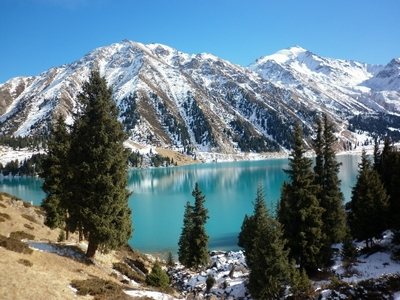
The Republic of Kazakhstan is a dynamic developing post-Soviet country. Most of the population live better than residents of the former USSR republics.
Many people want to move to Kazakhstan, as the standard of living is comparable to European ones. Many Russians move to the country to reunite with their families and return to their historical homeland.
Also an important factor is investment attractiveness, which has reached a high level of development. Therefore, some want to settle in the country in order to realize themselves. Kazakhstan has extensive natural resources and industrial potential. Funds from Russian and American investors, as well as large entrepreneurs from China, were invested in the economy.
There are also special advantages:
- training opportunity;
- legal employment;
- the prospect of obtaining citizenship;
- legal residence.
What fate awaits Russians in Kazakhstan?
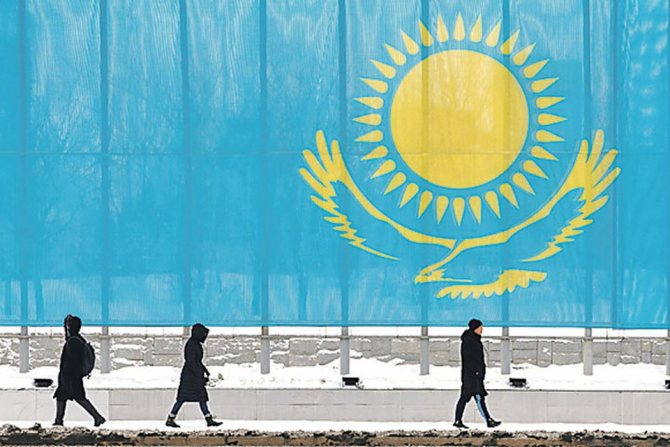
After Nazarbayev left the presidency, many began to talk about the fact that the new Kazakh authorities could speed up the de-Russification of the republic.
Photo: REUTERS
And shortly before this, in the new concept of Russian migration policy, almost for the first time, the multi-million Russian-speaking community living in neighboring countries was mentioned. Is Russia finally ready to take its compatriots home?
KP special correspondent Dmitry STESHIN, who had just returned from Kazakhstan, talked about this with one of the most competent specialists - State Duma deputy and director of the Institute of CIS Countries Konstantin ZATULIN .
— What is the current situation of Russians in Kazakhstan? Your mark.
— The bulk of the Russian population lives in the north and northeast of Kazakhstan, in cities that once bore Russian names, but have now been renamed. Guryev, for example, which became Atyrau, not to mention Tselinograd - after a series of renamings it turned into Nur-Sultan. Russians live there with ambivalent feelings. On the one hand, they know that since Kazakhstan gained independence, there have been no serious ethnic conflicts in the country. But at the everyday, grassroots level, problems are already being noted - especially with the younger generation of Kazakhs. Some young people, without hesitation, are discussing on the Internet how to expel the Russians from Kazakhstan?
Now there is a slight increase in the migration of Russians from this republic. 40 thousand people per year. It cannot be compared, of course, with the wave of the early 90s, when a million Russians and Germans left Kazakhstan. But anxiety is starting to be felt.
They now try to celebrate all holidays in Kazakhstan with national flavor. For example, Navruz - the day of the onset of spring - is celebrated with such a horse parade.
Photo: REUTERS
There are signs: the disappearance of the Russian language from banknotes, the translation of Kazakh into Latin. This is all a reflection of the changing internal politics of Kazakhstan, associated with a change in the ethnic balance in the country. When Nazarbayev began governing Kazakhstan, there were almost equal numbers of Russians and Kazakhs in the republic—6 million each. And in the 1950s, taking into account the virgin lands, there were even more Russians! Now Russians are already a national minority, there are 3.5 million of them, or about 20% of the population of Kazakhstan. But radicals still see the spread of the Russian language and the Russians themselves as a threat to Kazakh independence. Their radicalism is manifested in personnel policy, for example, where the dominance of the Kazakh ethnic group is clearly visible.
— Will the new authorities abandon the “velvet de-Russification”?
“I think the course will continue unless some external circumstances happen.” But we, in turn, will not restrain Kazakhstan. The change of power is connected with an old problem, for example, sanctions pressure on Russia, which Kazakhstan does not want to share with us at all. Despite the priority of relations with Russia, Kazakhstan is trying to pursue an independent policy. And he does not seek to get involved in any joint projects with Russia, which could worsen his relations with the West.
— Can something change the attitude in the republic towards the Russian-speaking community, for example, the introduction of the status of a second state language?
- Time is lost. This will apparently never be done again. In the 90s, Nazarbayev explored such a possibility. Including to stop the mass migration of the Russian population and strengthen relations between our countries. The migration of Russians had an adverse effect on the economy of Kazakhstan itself. But during Yeltsin’s time in Russia they were not interested in this. And then the “window of opportunity” simply closed. At the same time, Nazarbayev does not hide the fact that he loves the Russian language, sings Russian songs, and so on. But all this does not prevent him from gradually developing national Kazakhstan.
- 3.5 million people - an impressive force! Can the Russian community itself somehow resist the ongoing de-Russification?
“But there are also those who successfully assimilate. The process is not that fast. Nevertheless, assimilation continues. On the other hand, back in the 90s, Nazarbayev did everything to prevent the emergence of uncontrollable socio-political organizations and leaders. Both among the Russian and Kazakh populations. Nazarbayev wanted to be a leader for all ethnic groups in the country. Therefore, public leaders with national Russian overtones were marginalized, ousted, and forced to leave. And today the horizon is empty - there are simply no pro-Russian public figures in Kazakhstan. This void is covered by discourses about internationalism. But if the nationalism is Kazakh, everything is fine. Russians, for example, cannot be citizens of Russia and Kazakhstan at the same time. Although many would like to. But the Kazakhs can. This is guaranteed to them by the constitution of the republic, where an exception is made for Kazakh migrants.
— Is the new concept of Russian migration policy a preparation for the evacuation of Russian speakers from the former republics of the USSR?
— The new concept is not much different from the previous one. Repatriation is again not highlighted as a separate consideration. There are points there that talk about support for displaced compatriots, but in the general mass. This is a compromise document. I am concerned that the Ministry of Internal Affairs is being rebuilt very slowly. They still control entry and exit on the principle of “keep and don’t let in,” but do not consider the migration of compatriots as an important socio-economic phenomenon. For the first time last year, migration did not cover the population decline in Russia. We would like to quickly get on new tracks, but for now we are drowning in bickering...
- What to do?
— In fact, I have always been against the mass exodus of Russians from Kazakhstan and Ukraine. I have always believed that by en masse the population always protects itself. We need to pay attention to this - in a climate of depression and in anticipation of migration, the Russian population stops giving birth. In Kazakhstan, even in the most bitter years, there was an increase in the Kazakh population with a simultaneous increase in mortality and a decrease in the birth rate among Russians. Everything is interconnected. Therefore, we should not be shy - if the interests of Russians are affected, we should bring these facts up for discussion at the interstate level.
QUESTION OF THE DAY
What awaits Russians in Kazakhstan?
Nikita ISAEV, leader of the New Russia movement:
— The vector will be more pro-Western. There is a lot of symbolism in Kazakhstan, and attempts to rename Russian cities into Kazakh ones are a signal of a change in priorities and a departure from Russia. The disengagement will proceed at a faster pace—I expect an exodus of people in the next 3 to 5 years.
What awaits Russians in Kazakhstan?
Photo: Gennady BISENOV
Nikolai SVANIDZE, presenter, historian:
— The fate of the Russian-speaking population in this country depends on the relations between our two states. Nazarbayev adhered to the line on Kazakh identity, but did not offend the Russian population. If suspicions arise that Russia is laying claim to their northern regions, then relations could sharply worsen.
Konstantin BLOKHIN, expert at the Center for Security Studies of the Russian Academy of Sciences:
— Nazarbayev’s new protege demonstrates that the vector of relations with Russia remains the same. Global players understand the importance of Kazakhstan. And besides, none of the players is interested in a situation like the Ukrainian one, that is, in unrest between different groups of the population.
Semyon BAGDASAROV, director of the Center for the Study of the Middle East and Central Asia:
— Not so long ago there were approximately equal numbers of Russians and Kazakhs in this country. Now there are less than a quarter of Russian speakers. Previously, everyone wrote in Cyrillic, but now they have switched to Latin. I don't see anything good going forward. Our diplomacy sings praises to the leaders of Kazakhstan, while real problems are kept silent.
Andrey GROZIN, head of the Central Asia department of the Institute of CIS Countries:
— In the short term, there will be some stability, while the elites will actively restructure the political configuration for themselves. Tokayev, who is acting, is interested in demonstrating continuity and stability. Like all other participants in the big political game. With Nazarbayev alive, everyone will pretend to be faithful in a cube. And no matter who runs for elections, which may take place in less than a year, these two parameters - stability and continuity - will be the main message that the electorate will buy. Now there is a feeling that nothing will change for the Russians in six months.
How to move to this country from Russia?
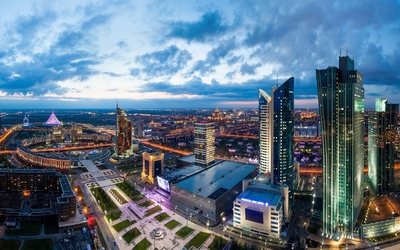
If an immigrant plans to stay for a long time, he must obtain a residence permit.
What are the ways to obtain a residence permit?
- Business immigration;
- employment;
- investments in the country's economy;
- family reunion;
- marriage with a citizen of the Republic;
- refugee status;
- education;
- work as part of international humanitarian programs or religious denominations.
List of required documents:
- Foreign passport and its photocopy.
- 4 photos (3x4).
- A document that defines the purpose of being in the country (for example, an invitation from relatives).
- Certificate of financial position.
- Certificate or rental agreement.
- Certificate of no criminal record.
- A document from the police proving that no conflicts occurred during your stay in the country.
All immigration issues are handled by the Migration Police. Officers work in almost every branch of the police department. Documents are submitted to the Migration Police at the applicant’s place of residence in Kazakhstan. The review period is 30 working days.
REFERENCE! If a refusal is received, you should go to court. You can file an appeal within two weeks from the date of receipt of the response.
What are the ways to obtain permanent residence?
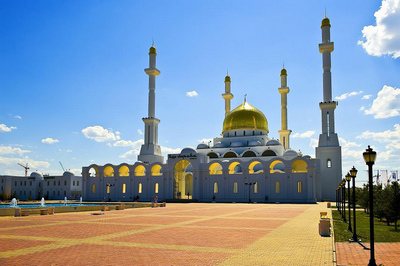
The right to obtain permanent residence is available to those migrants who have received the appropriate permit.
For such permission you need to contact the Migration Police. The permit can be issued by both a foreigner with a visa and persons who arrived in the country on another basis.
List of required documents:
- a document indicating that he has no citizenship;
- two 3x4 photographs;
- autobiography (in free form);
- A completed application form;
- departure sheet;
- medical examination;
- certificate of financial status.
Review of documents takes 60 working days. Refusal is a rare occurrence.
IMPORTANT! If a foreigner entered the country illegally, the answer will be negative and it is impossible to appeal.
“When you go to Russia for permanent residence, know what awaits you there...”
Hundreds and thousands of stories related to this seemingly simple process, which has been going on for more than two decades, have apparently reached the authorities of this country. Here they are finally talking about a new migration policy. But when will these yet-to-be-released laws come into effect and will they make the situation easier for our compatriots?
At the start - everything is simple
Here is just one of these many thousands of stories of people who decided to leave the former Soviet republics and move to the Russian Federation. We won’t talk about the reasons, but the main one is still quite clear - the call of the blood, the desire to live in the country of your ancestors and native language.
Having made this decision, the Zaripovs were relieved to learn that since they were born in Russia, they had some advantages. The procedure for completing all procedures and statuses is the same for everyone, but the time between successive receipt of the main statuses - temporary residence permit, residence permit and acquisition of citizenship - is significantly reduced.
Our independence is supervised from abroad 04/01/2021 16:304509
“There was one more plus at the start. After hanging around in queues at the Russian Consulate in Almaty for a month and a half (this was in January 2014), we submitted our documents. And six months later, having moved to St. Petersburg, we received a temporary residence permit, which saved us several months of waiting. This was the first stage of the journey to a Russian passport,” says Svetlana Zaripova.
Bureaucracy in action
Then everything was much more painful. The queues at the regional FMS office were simply fantastic. It was necessary to occupy them late in the evening or early in the morning, sign up with some vague individuals who were on duty at the doors of the regional migration service, weeks or a month in advance, report daily, and then, when the deadline arrived, stand for several hours in the offices to hand over the documents . Those who stood in line for a long time in cramped corridors exchanged experiences, shared information and their emotions about the difficulties of moving.
“During this time, I have never seen that anyone was lucky enough to pass the documents on the first try. Although a list of all the necessary certificates and questionnaires could be found on the website or service stands, it was impossible to fill them out correctly. What nuances were not cleared up when submitting all these papers! – recalls Svetlana. “At the reception, the inspector made a lot of comments and amendments, especially in the application. Having corrected everything, the next time (and because of the long queues it could only come in a month or two) you went to another inspector and he made new comments, demanded additional certificates, which the previous employee did not mention on your first visit. This is just incredible horror!
One of the unexpected requirements, for example, is the translation into Russian of the text of the passport of a citizen of Kazakhstan, birth certificates, diplomas of graduation from a Russian-language school, and stamps in documents. And this despite the fact that the second page of the Kazakh passport is filled out in Russian, as other documents and stamps on them are translated. But the translation had to be done and certified by a notary.
Black shadows of green energy. End 03/31/2021 11:003437
I was struck by the high ranks of FMS employees who performed fairly simple duties of accepting documents. Majors, lieutenant colonels, colonels... The state, of course, knows best, but what costs does it incur where everything could be made more transparent, simpler, more accessible and cheaper.
A little later, all district services of St. Petersburg and the Leningrad region were united into one migration center. There it was especially clearly visible how many people had come for permanent residence to the northern capital of five million and the region of almost two million and were eager to receive a Russian passport.
Only two hundred people were accepted per day, but there were many more who wanted to get a ticket to see the inspector. People stood on the street for several hours to be the first to enter after the opening. The building is of impressive size, there are separate halls and even benches for those waiting for seemingly good changes. But in the offices everything remained the same. In addition to the endless alterations of documents and certificates, the many-day waits for the next visits, the attitude of the officials was depressing, indifferent, rude, to whom they seemed to say the notorious: “Here we come in large numbers!”
“In 2015, we finally submitted our documents and six months later received a residence permit. The wait for citizenship was supposed to take another year, but it lasted much longer due to the same queues and bureaucratic ordeals in offices. One year, I note, is the official period for those born in Russia. Those Russians who were born in other republics of the former Soviet Union need to wait five years!” says Svetlana Zakirova.
Absurdity and shadow business
Increase in energy tariffs. Second season 04/09/2021 09:001235
The Zakirovs calculated that they spent more than three years on the entire process from the beginning of applying to the Russian Consulate in Almaty to receiving a passport with registration! And all this time they did not even try to look for work - firstly, they had to deal with all the stages of obtaining citizenship, and secondly, without citizenship it is problematic to find a job. The employer needs to obtain special permission to hire you, and this is troublesome. We are not talking about employing a whole team of builders from another republic, for example, but about just one person.
“During this time, we have aged another three years and now, even though we have a passport, we are not very much in demand on the labor market due to our age,” Svetlana saddens.
Now she understands why obtaining citizenship for young people takes many years - they need to work, it’s difficult to endlessly ask for time off to visit the migration service. That’s why some people don’t have a passport even after ten years of living in Russia, while others are forced to turn to the shadow side of acquiring a red-skinned book.
“The clandestine acquisition of citizenship for a lot of money in Russia is quite developed, as evidenced by frequent reports on major TV channels. But we, as law-abiding citizens, did not take this path, and we were sure that our homeland would cordially open its arms to our compatriots,” says Svetlana and finally briefly tells the story of her son.
The son, who studied in St. Petersburg, began the procedure for obtaining Russian citizenship later than his parents, since this is not so important for a student. He was registered under the status of “native speaker of Russian”. And what? He, who graduated from a Russian-language school in Almaty, which is confirmed by a certificate in Russian, and was a final year student at St. Petersburg University, was required to take an exam in the Russian language! The special commission that took this exam from him to obtain a certificate of knowledge of the Russian language did not really hide the fact that this was a simple formality. But the long queues to go through this procedure as well, a big waste of time, were quite real!
What will change?
A few months ago, the President of the Russian Federation issued a decree on state migration policy until 2025. It says that over the past five years, more than a million people have received Russian citizenship. It is recognized that in this way the migration flow compensated for the natural population decline and became a source of additional labor resources for the economy.
The demographic situation in the country is not great. Experts have calculated that without migration growth the population will be 137 million people by 2035, and with it - 157 (currently 147 million).
Now Russia plans to receive 5-10 million people in the next 5 years, and this seems almost fantastic. Of course, if, as in some countries, citizenship was granted almost from the moment a person stepped off the plane, then such a fairy tale could be made true. But this is unlikely for various reasons, the main one of which is not to make the country a passageway for crime.
Relaxations and simplifications, however, are planned; after the Decree, new laws should be adopted. It is expected that simpler and clearer rules will be established, free of administrative barriers. Apparently, the realization is finally coming that the world is now competing not for natural raw materials or technologies, but, above all, for people.
***
© ZONAkz, 2021 Reproduction is prohibited. Only a hyperlink to the material is allowed.

